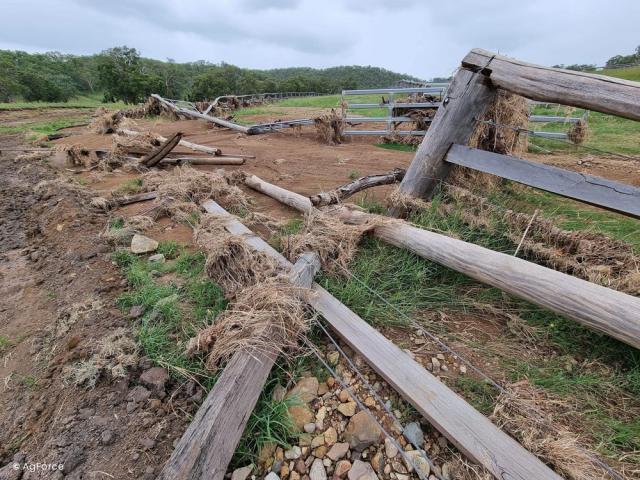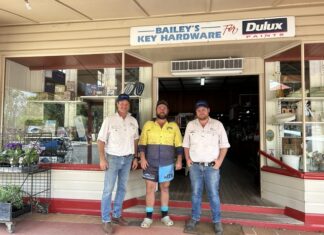I was fixing a flood crossing for the sixth time in the past six months over the weekend and I had to stop myself from cursing the rain.
I quickly remembered back to October when I was kicking the dust while putting out drought lick – how quickly times have changed.
With over 1500mm of rain in the last few months the cows no longer come looking for me and instead amongst all the tall grass and hidden bog holes – I have to go looking for them – often not with complete success.
With all the grass around I am casting my mind forward to this October when I’ll be no doubt fighting a few bush fires.
How good is the merry-go round of living and working on the land?
If they hadn’t invented cold beer farmers would have given up chasing their own tails decades ago with all of the seasonal fluctuations when carbon dioxide levels were a bit lower and things were a bit easier.
I don’t want to sound trite about climate change and our need to reduce our reliance on fossil fuels and lower carbon emissions, but I can’t help but wonder what will happen once we meet the lofty and expensive goals of net zero emissions. I’ll hazard a guess I’ll still be putting out drought lick, fixing flood crossings and fighting bushfires in the same sequential order I do now.
Now I am no climate change denier. The science is clear – it is getting hotter and drier. Last year was the hottest and driest on record. This year looks like it could be one of the wettest and we aren’t even halfway through. However, my position is that if the climate is changing than we must adapt and change our approach also.
One of my frustrations around the climate change debate is that the focus is always on emissions reductions and trying to change the climate (or at least keep it the same) rather than talking about how we adapt to and mitigate the impacts from an always changing climate.
Even if we could reduce carbon emissions tomorrow – the climate will still keep changing. It’s been changing for over five billion years and people tying themselves to inner bridges and waving placards won’t change that reality.
This is not an excuse not to limit our emissions and transition to a cleaner and greener future – but the reality is that the climate will always be variable.
Another of my frustrations is the use of climate change by our politicians to waive away all their responsibilities when natural disasters strike.
Whether it be bushfires, floods, cyclones, droughts and disaster relief – the failures of all levels of Government to adequately plan and prepare is deflected by terms like “climate catastrophe”, “unprecedented” and “we have never seen anything like this before”.
The reality is that we have in many incidences seen bigger and badder natural disasters to allow us the ability to learn from our earlier mistakes. Whether it is not undertaken hazard reduction burns in eucalypts forests, building more houses in flooded areas or not preparing for a drought – there are always simple, practical and achievable things we can do to protect ourselves, our community and our environment.
Sadly, must of this common sense is lost in the hysteria of the climate change debate and accordingly our approaches to solving the problems are often based more on emotion than reason.
The reality is even if we manage to “save” the climate – we will still get wet, burnt and thirsty like we always have and always will.









